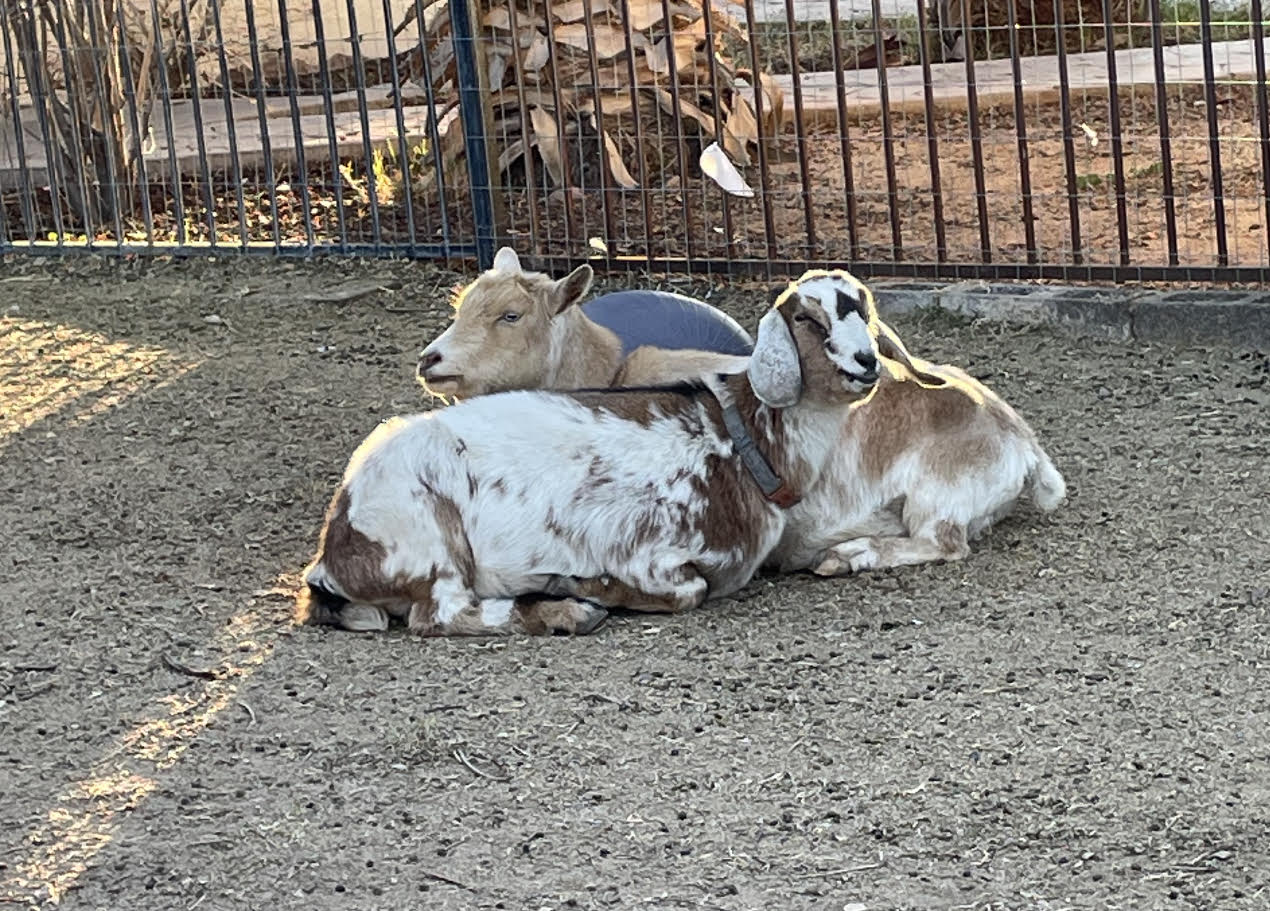Due to its cost-effectiveness and positive environmental impact, sustainable farming is gaining popularity in the agricultural sector. There are several benefits to sustainable goat rearing. This article explains how goats can help you make money and save the planet, and it gives you advice on how to raise goats in a sustainable manner.
Gains from Keeping Goats
Goats need less space and resources than larger animals but yet provide the same level of milk and meat. Since they provide milk, cheese, and meat and are less expensive to feed than cows, farmers may decide to purchase them. Goats might be a good way to generate passive income with little up front cost. If you have access to good breeding stock, raising goats may be a lucrative business. You may expand your herd and income by selling breeding stock to other goat farmers or using it to breed your own goats. High-quality fibers from goat breeds like Angoras and Cashmeres may be used to create garments and other textiles. The great quality and long life of goat fibers make them desirable and fetch high rates.
Two gallons of milk a day from a dairy goat is possible, and that milk might fetch $5 if sold in gallons. It’s possible to make $40,000 a year with four goats, or $40 per day. Female goats may produce many kids every year, which can be used to expand your herd or sold. Goats are kept for their milk, which is in great demand owing to its delicious flavor and nutritional advantages. Raw goat milk has several potential uses, including in the food industry. Farmers may profit handsomely from selling goat milk products due to the high demand.
Farmers may save money thanks to goats since they eat weeds. Farmers may save money on herbicides and other chemicals thanks to the weed-eating abilities of goats. Their manure is beneficial to the land and helps save money on fertilizer. Some homeowners are considering renting goats so they may use them for natural weed management or to remove brush from their land. Provide a one-of-a-kind and environmentally responsible service by renting out your goats to these people.
The Positive Effects of Goats on Nature
Goats are an ideal livestock animal for dry and semi-arid regions. As compared to cows, goats need less water and food to produce milk and meat. Since goats can be farmed in places where other livestock can’t, they play a crucial role in environmentally-friendly farming. Goat meat is a delicacy in many different cultures and its popularity in the United States is on the rise. Goat meat, unlike other red meats, is low in fat and rich in protein. You may sell goat meat to eateries, supermarkets, or individuals.
Goats are more carbon neutral than cows and other livestock. The production of methane, a potent greenhouse gas, is reduced. Goats produce 90% less greenhouse gases per kilogram of meat than cows, according to a study published in Agricultural Systems. Farmers that raise goats benefit the environment.
The Future of Goat Farming:
Successful goat husbandry requires diligent management and attention to detail. The gold standard:
Provide Enough Housing; Goats need a dry, comfortable place to stay throughout the winter. Give each goat plenty of space to roam and graze, and make sure the shelter is dry, airy, and clean. Goats need hay, grass, food, and minerals to maintain optimal health. Consult with a doctor or animal nutritionist to establish a goat feeding strategy.
Keep your goat farm clean; parasites and diseases may spread to goats. Be sure the goats have good water and shelter, and check them over for any signs of illness or injury.
When starting a goat farm, make sure you understand and abide by all applicable laws and regulations. Potential legal constraints include those imposed by zoning regulations, animal welfare policies, and the like.
Sustainable goat farming minimizes the use of toxic chemicals and other materials. Compost goat poop, utilize natural fertilizers, and practice integrated pest management.
An investment in goats is both sustainable and profitable. Milk, cheese, and meat from goats may be produced with a little investment in feed. Saving money and improving soil quality, goats may be used for fertilization and weed control.
Goats are more sustainable than cows when it comes to the environment. They help keep farming going in arid and semiarid regions since they use so little water. Goat husbandry is only successful with proper management and attention. Housing, food, hygiene, local regulations, and environmentally responsible methods are essential to the project’s success.
When starting a goat farm, make sure you have a solid strategy. Goats, if treated well, may be a reliable source of income and can help keep the wilderness safe, too.

